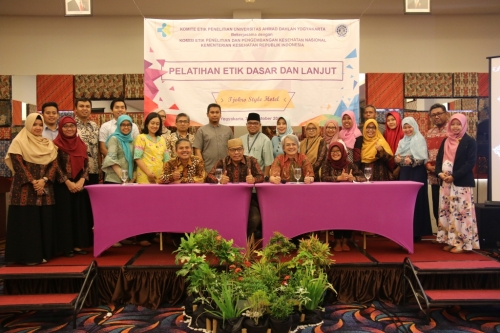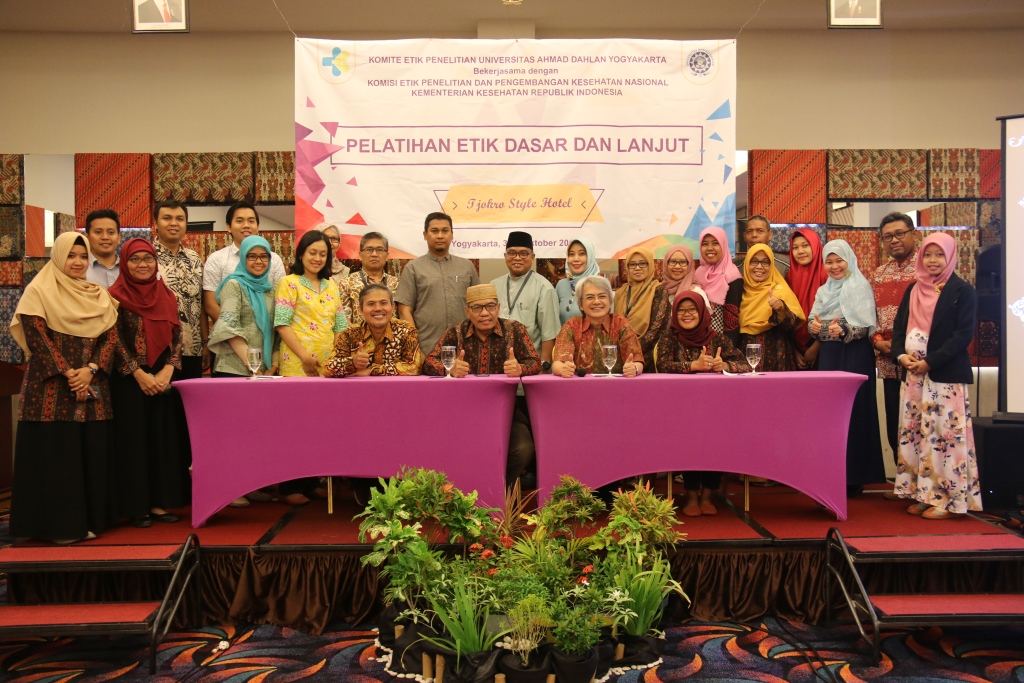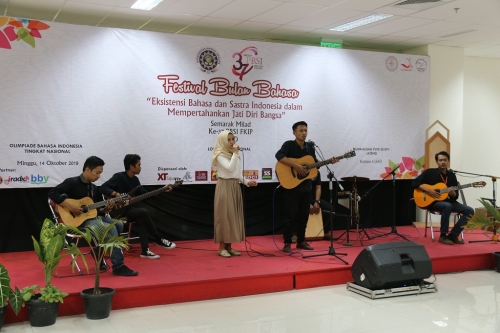UAD Holds Basic and Advanced Ethics Training
Research Ethics Committee of Universitas Ahmad Dahlan (UAD) Yogyakarta, in collaboration with the National Health Research and Development Ethics Commission of Ministry of Health of the Republic of Indonesia held basic and advanced ethics training. The event that was held at Tjokro Style Hotel (3-5/10/2018) presented Dr. Triono Soendoro, Ph.D as a speaker.
On this occasion, the Rector of UAD, Dr. Kasiyarno, M.Hum., expressed his gratitude to UAD Research Ethics Committee that had carried out regular training in the past few years.
"In this era, We have to pay respect to others well, especially in the field of research that uses human subjects. The duty of the ethics commission is to educate the people so that there are no human rights violations," he explained when giving a speech.
He added that humans needed to be dignified. According to him, in the realm of research we had to be used to the attitude of protecting and treating humans as human beings themselves. "There are ethos and empathy, not exploitation. The essence of this training is to respect and elevate human dignity," he said.
The training, which has been running since 2013, aims to increase understanding of ethical principles, moral responsibility and integrity. From the ethical side, each research and its results must be accountable.
On the other hand, Dr. Akrom, M.Kes. , the Head of UAD Ethics Committee, said that the training, which was intended for scholars and practitioners, had been held for the past five years. "Initially it was only for UAD, but until now many participants came from UAD. We give turn to UAD lecturers to take basic and advanced ethics training," explained Akrom.
According to him, the basic and advanced ethical training was usually only in the form of material. However it is now coupled with the latest information system (Sim) practices. It aims to improve the quality of research. "Ethics training becomes trustworthy, especially for health and psychology study programs because their research has a lot of contact with humans." (Ard)





